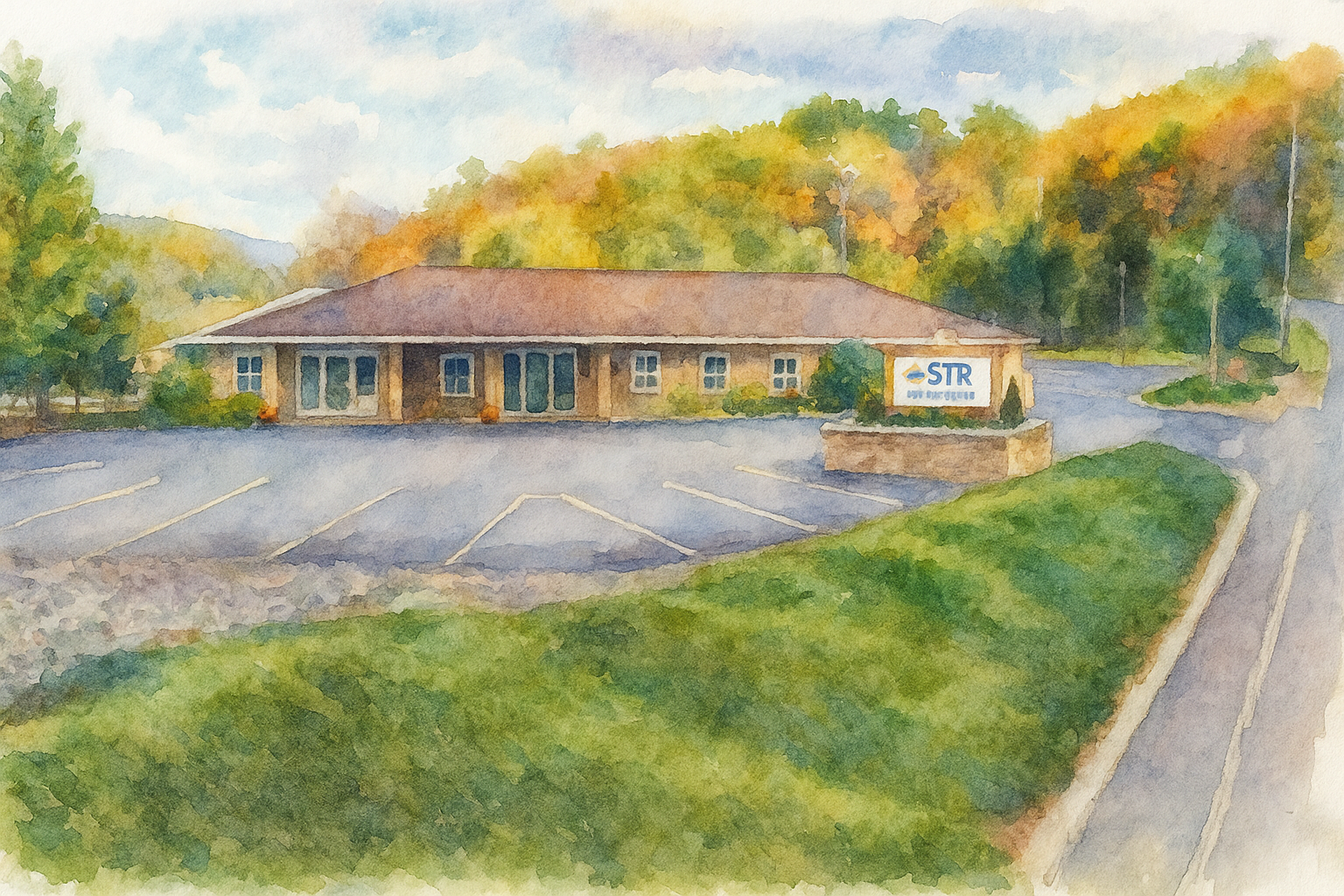When you or a loved one is navigating the complexities of a dual diagnosis — simultaneously managing a mental health condition and substance use disorder — choosing the right treatment approach is essential. One of the first decisions you’ll need to make is whether inpatient (residential) or outpatient dual diagnosis treatment is the best fit for you.
At STR Silver Pines, we offer both inpatient and outpatient treatment options, each designed to support individuals on their path to recovery. This article will guide you through the key differences between inpatient and outpatient care, helping you make an informed decision about which treatment option is right for you or your loved one.
What Is a Dual Diagnosis Clinic?
Dual diagnosis treatment is a specialized approach tailored for individuals with co-occurring disorders, meaning they are managing both a substance use disorder (SUD) and a mental health condition like depression, anxiety, post-traumatic stress disorder (PTSD), or bipolar disorder. These conditions are often intricately linked and must be addressed simultaneously to achieve lasting recovery.
A 2023 review in the Journal of Substance Abuse Treatment found that individuals with co-occurring disorders who received integrated care were nearly three times more likely to remain sober after six months compared to those who received treatment for only one condition (Vol. 139, No. 3).

Silver Pines Detox + Residential
Mahanoy City, PA
Read more: What is Dual Diagnosis — and Why Is it Important?
What Is Inpatient Dual Diagnosis Treatment?
Inpatient treatment — also known as residential treatment — involves living at a treatment facility full-time. This level of care provides round-the-clock support and supervision, structured therapy, and a focused environment that fosters healing.
Key Benefits of Inpatient Care
- 24/7 medical and emotional support
- Medically supervised detox (if needed)
- On-site psychiatric care and medication management
- Daily therapy sessions, both individual and group
- Distance from triggers or harmful environments
- Supportive peer community
Inpatient care is often recommended for individuals who:
- Have a history of relapse
- Are at risk of severe withdrawal symptoms during detox
- Struggle with suicidal thoughts or psychiatric instability
- Lack a stable or supportive home environment
What Is Outpatient Dual Diagnosis Treatment?
Outpatient treatment allows clients to live at home or in supportive housing while attending therapy and treatment sessions several times per week. This option offers greater flexibility and is often used as a step-down after inpatient care or for those with milder symptoms.
Benefits of Outpatient Care:
- Ability to maintain work, school, or family responsibilities
- Continued connection to home and local support systems
- Lower cost than inpatient treatment
- Access to therapy, medication management, and case management
Outpatient care is often recommended for individuals who:
- Are medically stable
- Have already completed detox or residential treatment
- Have strong external support (family, job, community)
- Need to balance recovery with daily life responsibilities
How to Choose the Right Option
When considering inpatient vs. outpatient dual diagnosis treatment, here are key questions to ask:
- Are you in active withdrawal or need detox?
- Inpatient care is recommended to ensure safety.
- Have you tried outpatient care before without success?
- Residential/inpatient treatment may be a better fit.
- Do you have a supportive home environment?
- If not, inpatient can provide much-needed stability.
- Are you experiencing severe mental health symptoms?
- Inpatient allows for more intensive psychiatric support.
- Do you need to keep working or caring for family?
- Outpatient provides more personal flexibility while still providing focused treatment
Read more: Medical Detox for Drug + Alcohol Withdrawal
How STR Silver Pines Supports You
Whether you need inpatient care now or plan to step down to outpatient care later, STR Silver Pines is here for every step of the journey. Our dual diagnosis treatment center in Pennsylvania offers:
- Medically supervised detox
- 24/7 psychiatric and clinical support
- Dual diagnosis-specific therapies
- Personalized aftercare planning for outpatient transitions
- Ongoing support for individuals and families
We treat a range of co-occurring disorders, including:
- Anxiety and alcohol addiction
- PTSD and opioid use
- Depression and cocaine use
- Bipolar disorder and polysubstance use

Silver Pines
Dual Diagnosis Treatment in Pennsylvania
With expert-led care for co-occurring disorders, we equip clients with essential life skills, coping strategies, and self-awareness for lasting recovery.
Watch the video to learn more.
Speak With Our Admissions Team
Choosing the right treatment option doesn’t have to be overwhelming. Our admissions team can help you determine which level of care is best for your unique needs.
Contact STR Silver Pines today to learn more about inpatient and outpatient dual diagnosis treatment in Pennsylvania — and start your path to lasting recovery.
References
- Journal of Substance Abuse Treatment, Vol. 139, No. 3
- American Journal of Psychiatry, Vol. 180, No. 1
- The Journal of Dual Diagnosis, Vol. 20, No. 2
Contact Us
Take the first step toward recovery today. Call now to connect with a compassionate team member who will answer your questions and guide you through the admissions process.
Prefer we reach out to you? Complete our contact form, and we’ll be in touch soon.
Admissions






